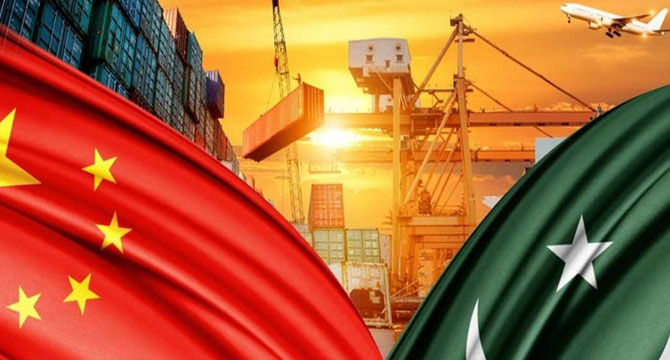ISLAMABAD , July 10, 2023: Both Islamabad and Beijing are eager to expand the China Pakistan Economic Corridor (CPEC) for albeit different reasons – the former in desperate need of foreign investment and the latter eyeing expansion in its geopolitical influence.
But the other nations – from Saudi Arabia and the United Arab Emirates (UAE) to the Central Asian Republics – too are showing interest. For the landlocked countries of Central Asia, it’s an opportunity to minimise their dependence on Russia and seek other avenues.
On the other hand, the two rich Gulf states are aiming to slash the share of petro carbons in their GDP by not only by attracting foreign investment in their countries but also by investing in others. Thus by diversifying their economies in this manner, they are also enhancing the international clout and standing.
So this convergence of interests is making the CPEC an attractive deal for everyone and hence we have seen the existing players – China and Pakistan – working on third-party participation in the venture.
It is a not a surprise given the fact that the reports about billions of dollars in investment from Saudi Arabia and the UAE are no more a secret.
Last week, Prime Minister Shehbaz Sharif had even advised India to take advantage of the prospects provided by the CPEC that is based open the very idea of regional connectivity – the very basic rule for any regional blocs, be it political or economic in its nature. The European Union is the best example in this regard.
The latest reports suggest that the Ministry of Foreign Affairs has given its input for third-party participation in CPEC – which didn’t have much progress and got much or less stalled since 2018 for a combination of internal and external reasons – after the Joint Working Group (JWG) on International Cooperation and Coordination drafted the modalities on this subject.
In this scenario, there are two important events are coming up for Pakistan – the next meeting of the Joint Cooperation Committee (JCC) is scheduled in China on August 11 and the IMF’s Executive Board will meet on July 12 in Washington for considering approval of $3 billion under the Stand-by Arrangement (SBA) programme.
Pakistan really wants to see success in both cases as its economic revival depends upon dollar inflow which in turn is a product of the confidence of international players have in the country’s political and economic system.

